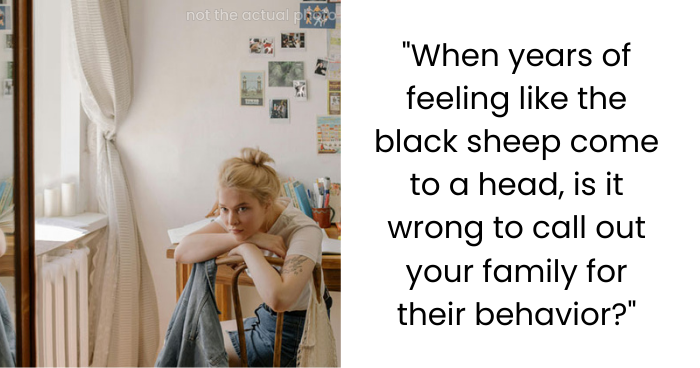Family Mocks Member’s Interests for Years, Shocked When They Finally Speak Out
Nothing is more painful than trying to reach out multiple times in your family, only to be met with no response or ridicule, making you feel like an outcast in your very own family. By — 18 Marco Cato waited until he had finally gotten through to his mom with a letter where he related to the story of daddy issues. Her parents (who shed their punny humor in her late teens) and brother nurtured such family traditions as board games and sci-fi novels, but her own pursuits—pop music, the TV series White Lotus—were often the subject of ridicule or, in their eyes, tacit negation.
Eventually, for college, she got the heck out of L.A. and moved to NYC, where she started to find a chosen family in her roommates, and in the nice gestures and invitations she received from some of her friends’ parents. She dismissed the excitement of a NYC Christmas so much when her mom called to check in–that was the last straw. Now filled with anger, the daughter told her mother that it was okay to stop pretending that she cared, and reminded her how for years she has felt like the black sheep. Her mom called her dramatic and said she thinks ‘she’s better than everyone’ and the daughter is wondering whether she’s gone too far.
Sadly, not everyone gets the chance to feel a sense of belonging within their own families

The author was born into a family that all love fantasy, sci-fi, board and video games, while they don’t
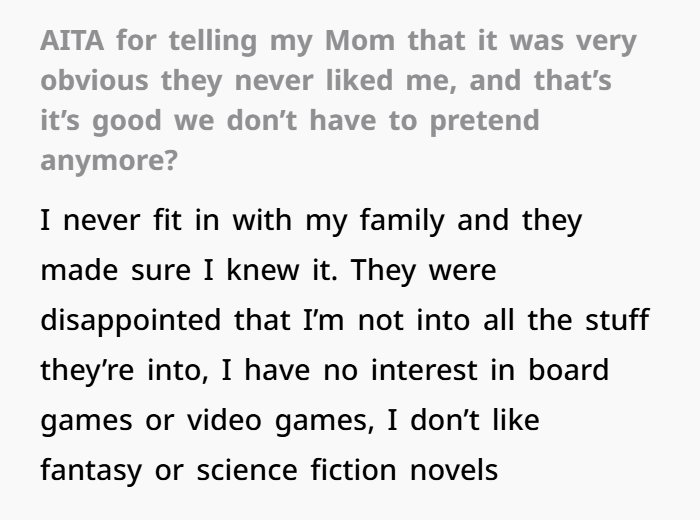
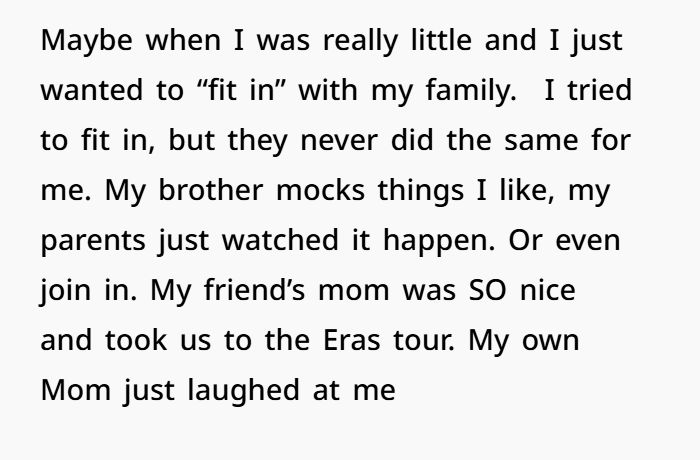
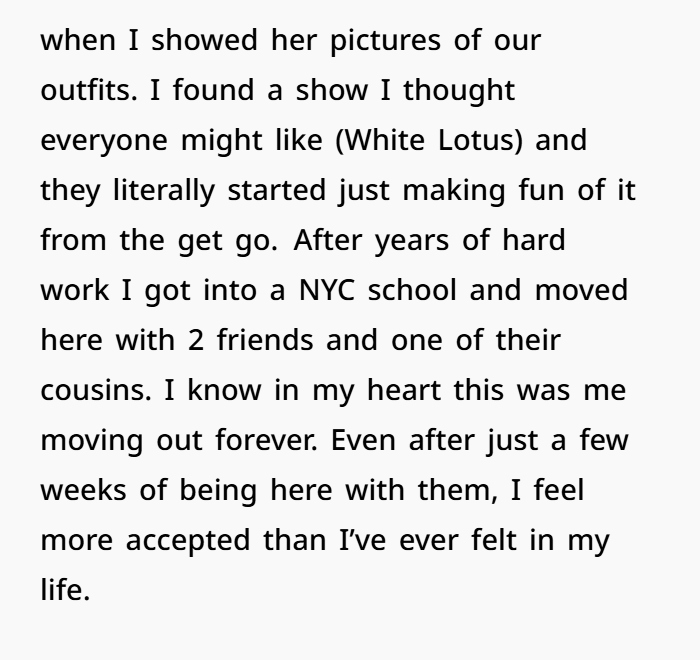
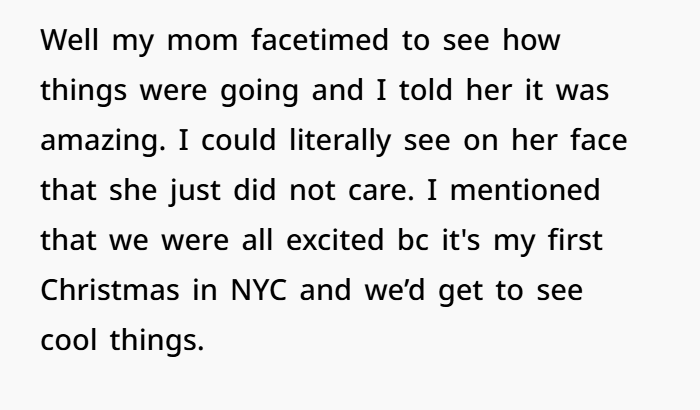

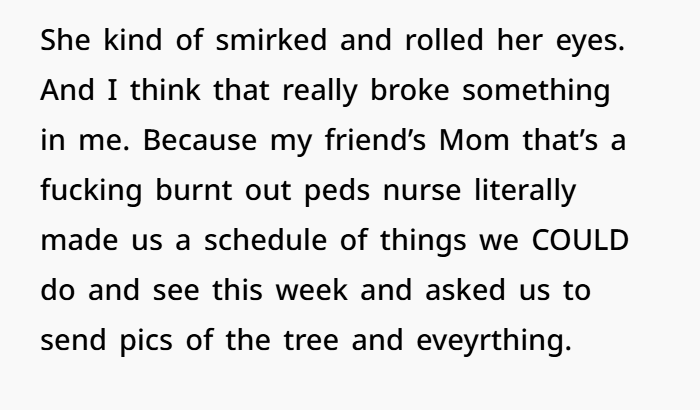
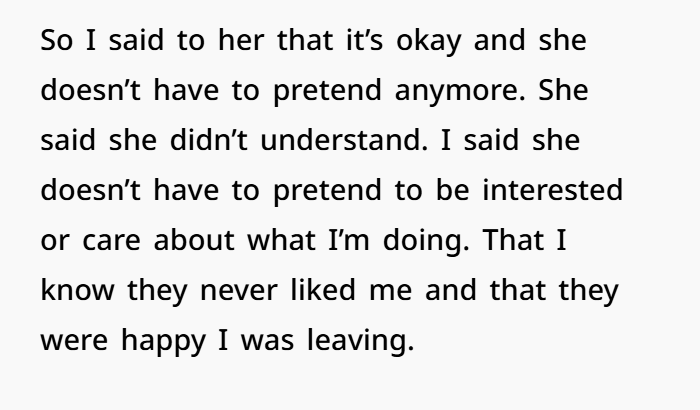
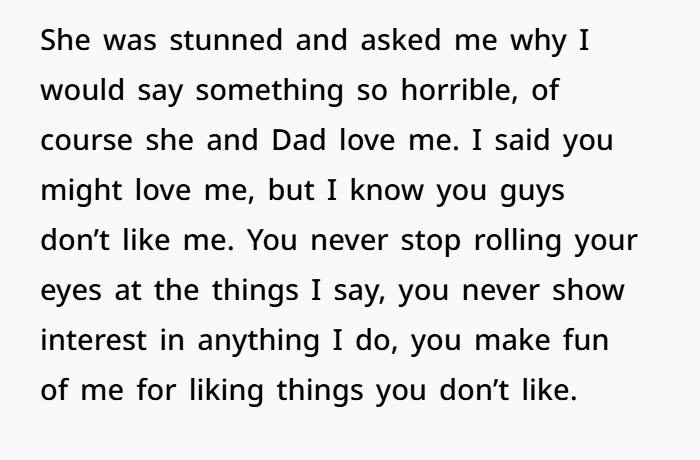
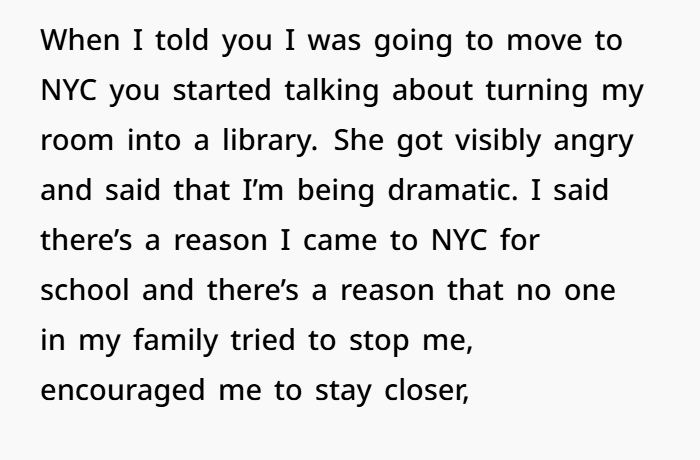
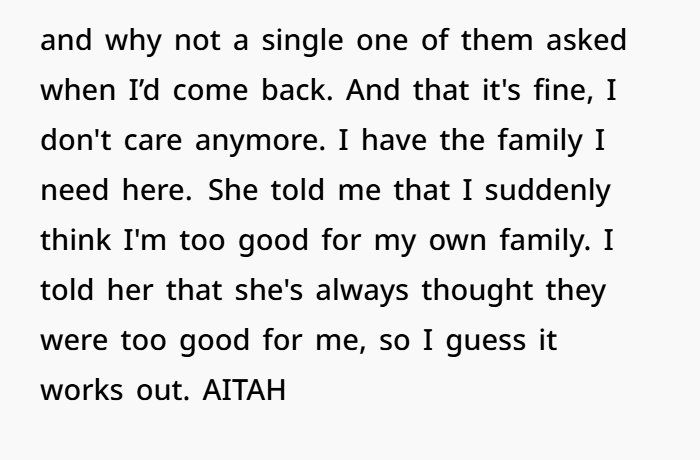

Emotional Neglect, Family Dynamics, and Setting Boundaries
1. Feeling Like the Black Sheep
The “black sheep” in the family is typically one of the group with interests, values or opinions that differ from the others. Valid feelings on the daughter’s side — if her family never tried to participate in her passions, and constantly mocked what she enjoyed, then she probably felt awfully alone.
Psychologists say that validation and respect for individuality are critical in healthy family relationships. In the absence of this, people turn to wherever they find acceptance, as she has with friends and their families.

2. Emotional Neglect vs. Miscommunication
Even if the family truly loves her, their actions (eye-rolling, putting her interests down, no enthusiasm) tell her she is emotionally neglected. And these little behaviors over time can imply— even if not intended— that she is not important or worthy of respect.
The confrontation prompts her own mother to respond out of anger and defend herself, not wanting to confront the cycle. Instead of validating her daughter’s pain, she deemed it “dramatic,” the same dynamic that her daughter described to the therapist.
3. Confrontation: Right Intent, Harsh Delivery
It was an emotionally-charged confrontation, but also an effort to articulate the pain of years past and express set boundaries. Her point was definitely valid but the way she said it, was a little harsh — you dont like me and you were happy i left. Rather than generalizing, if she were to have framed her feelings around particular examples, such as making fun of her hobbies or the library comment, there could have been more constructive conversation.
4. Moving Forward: Navigating Family Relationships
- Communicate Clearly: If she chooses to revisit the conversation, she can clarify that her comments came from a place of hurt and offer specific examples of behaviors that made her feel excluded.
- Set Boundaries: It’s okay for her to focus on the family she’s built in NYC while maintaining a relationship with her parents on her terms.
- Seek Closure for Herself: If her family remains dismissive, she can find healing through therapy or by leaning into her supportive chosen family.
The author’s mom got defensive and started insulting them, which netizens took as typical behavior of a person who cannot admit they are in the wrong



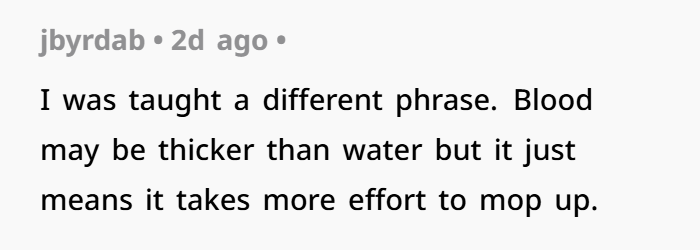
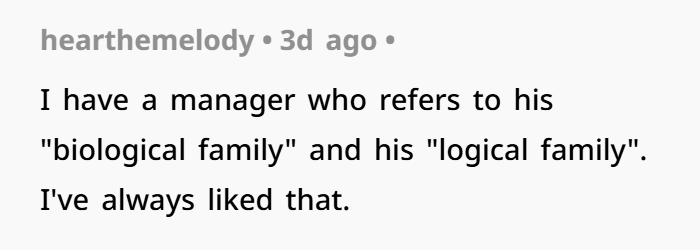
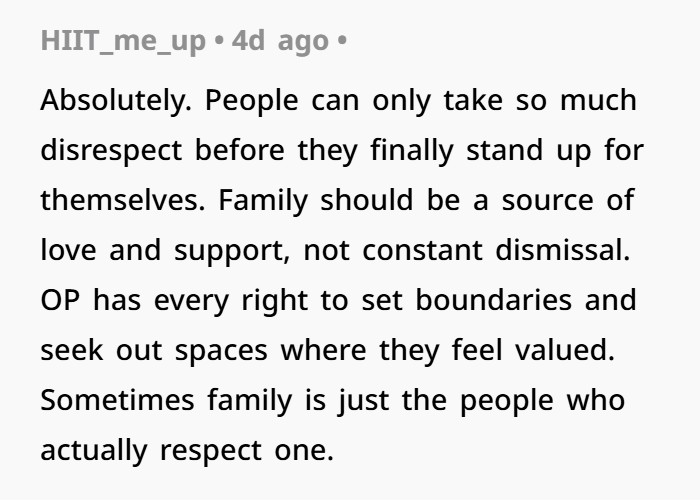
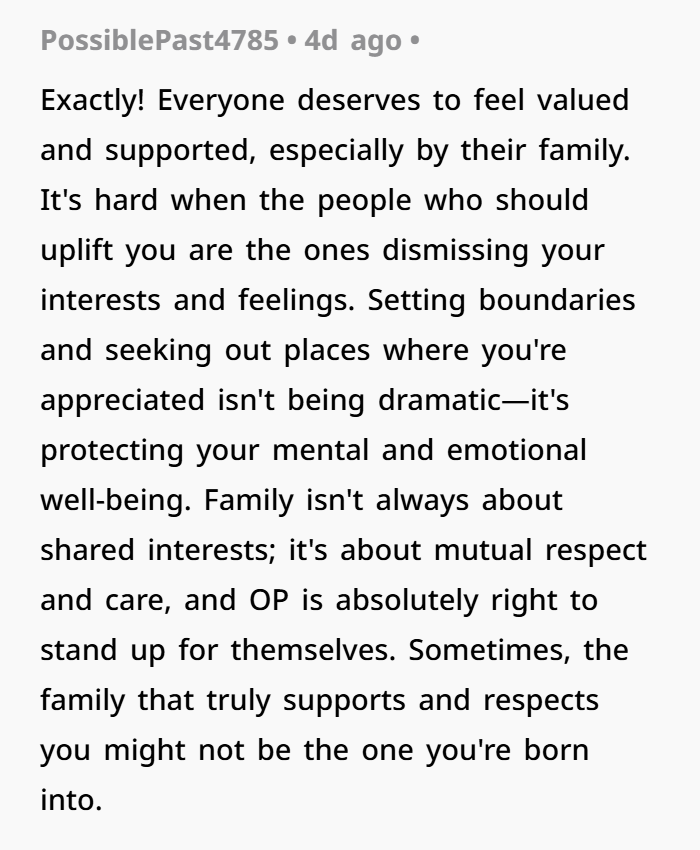
She was simultaneously telling Mom that 1. She is the opposite of an a-hole for expressing years of hurt and frustration and the opposite of nice for the way she delivered all that news: her behavior/tone maybe wasn’t the best for into-building. Her feelings of being ignored and told that her traumatic experience (her father going to jail) was nothing really are valid, and her mother responding in anger and defensiveness is actually highly symptomatic of a family dynamic that will take time to process.
Having established boundaries and a sense of completeness within her family of choice, she has control over her support system, whether her family decides to grow or not.

